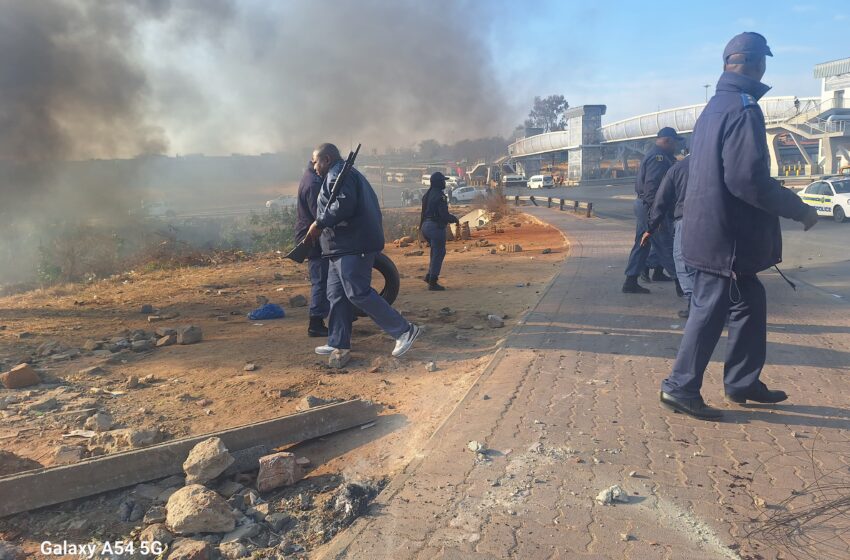Thembisa residents and police clash in protest over electricity charges

Police clash with Thembisa protesters over electricity tariffs
Thembisa, a township in Ekurhuleni, Gauteng, descended into chaos on Monday, 21 July, as hundreds of residents took to the streets to protest against newly introduced fixed electricity charges. What began as a peaceful demonstration quickly turned volatile, prompting a heavy police response involving tear gas and rubber bullets.
The unrest highlights growing frustration over South Africa’s electricity crisis, escalating tensions in economically strained communities already burdened by load shedding, unemployment, and soaring utility bills.
Residents Reject R560 Fixed Tariff Hike
The protest was sparked by the recent rollout of a controversial R560 monthly fixed electricity fee by Ekurhuleni municipality. Residents argue that the charge is unaffordable and unjustified, especially in a community where many struggle to meet basic needs.
The protest was fueled by a growing perception that the municipality is indifferent to the financial realities of township dwellers. Protesters accused local officials of imposing the new charge without adequate consultation or explanation.
Residents say they are being punished for poor governance and mismanagement at Eskom and the local municipality. “We are barely surviving. Now they want us to pay R560 before even using electricity?” one protester told reporters.
Police Respond With Force as Protests Turn Violent
As the protest intensified, police deployed stun grenades, tear gas, and rubber bullets to disperse the crowds. Barricades of burning tyres lined the streets of Thembisa, with rocks and debris scattered across major roads.
Several shops were looted, and local infrastructure was damaged as law enforcement clashed with demonstrators. There were also unconfirmed reports of arrests and injuries.
Residents accused the police of heavy-handed tactics, while officers claimed they were responding to threats against public safety and property.
READ ALSO
FlySafair lockout grounds flights amid escalating pilot strike and wage dispute
Gauteng businessman sentenced to 10 years for R66 million Transnet fraud
Power Outages, Poverty, and a Ticking Time Bomb
The protest reflects deep-seated grievances far beyond electricity pricing. Thembisa, like many South African townships, faces persistent poverty, service delivery failures, and youth unemployment.
Electricity blackouts and soaring prices have only added fuel to an already explosive situation. Many residents feel abandoned by both local and national government, a sentiment echoed by activists who say the unrest is “just the beginning” if urgent action is not taken.
Analysts warn that these township flare-ups may become more frequent as local governments struggle to balance budgets while facing public resistance to rate increases.
Municipal Officials Urged to Engage Community
In response to the chaos, the City of Ekurhuleni issued a statement urging calm and pledging to review the tariff model. Officials say the fixed charge was introduced to stabilize revenue and improve long-term service delivery, a justification many residents reject.
Community leaders are now calling for a public forum where residents can voice concerns and help shape utility policies. “You cannot make life harder for the poor and expect peace,” said one local activist.
A Nation at Boiling Point?
Thembisa’s unrest serves as a potent reminder of the social volatility brewing across South Africa. Electricity access, once a symbol of progress has now become a flashpoint for inequality and unrest.
As local leaders scramble to contain the situation, the broader question remains: how long can South Africa’s vulnerable communities endure rising costs and collapsing services before more townships follow Thembisa’s lead?

